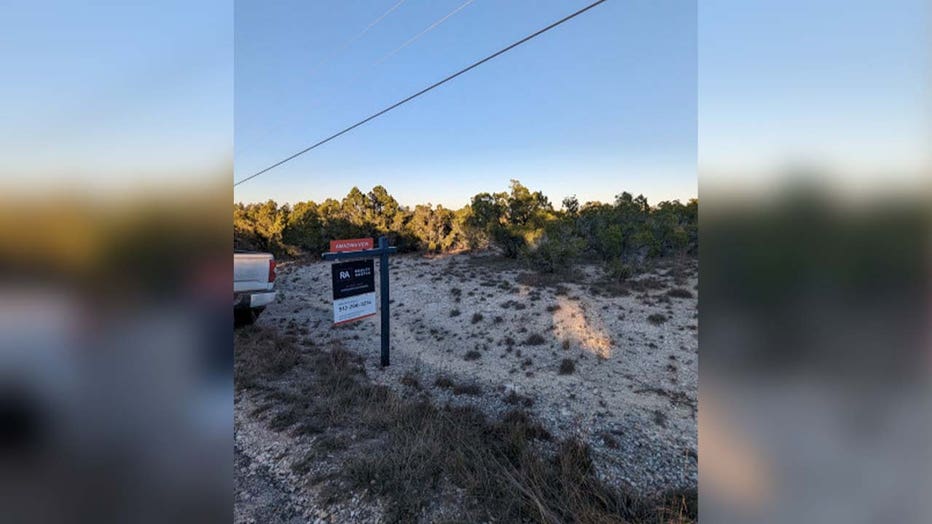Beware of 'title pirates' wreaking havoc on Central Texas landowners
Beware of 'title pirates' in Central Texas
A scam targeting landowners appears to be happening in the Austin area. The scammers are called 'title pirates' and are targeting landowners.
AUSTIN, Texas - A scam targeting landowners appears to be happening in the Austin area.
Back in December 2022, Manny Arce was contacted by a prospective seller.
"He was like, ‘I need to sell this lot. I need to move it quickly,’" said Arce, a Realty Austin realtor.
The seller, who said his name was Joe Grasso, communicated with Arce regularly over phone, text and email.
"I told my coordinator, ‘Hey, don't put this property on the market because there's something that doesn't feel right,’" said Arce. "‘I need to meet this guy, and he refuses to meet with me. We haven't talked in person.’"
The day he planned to put the land on the market, Arce found the property owner’s home address in his tax records and decided to stop by with some flowers.
"I went with the intention of, I'm going to show up to his house, and either he's going to be like, ‘Thank you, you're so awesome, you showed up, I'm excited to sell this lot,’ or ‘Who are you and what are you doing at my house?’" said Arce. "And sure enough, I showed up and his wife opens the door. I was like, ‘Hey, I'm looking for Joe Grasso.’ And she's like, ‘That's my husband, and who are you?’"

Courtesy: Manny Arce
The real Joe Grasso, who owns the 10-acre property by Hamilton Pool, had no idea what had been going on.
"I was shocked," said Grasso, in an interview with FOX 7.
Arce said a fraudulent seller could come up with fake forms of identification and use a mobile notary to meet with the title company, which will then pass on the title.
In Grasso’s case, the person impersonating him knew he had a brother and provided email addresses that appeared legitimate.
"There was a lot of information there that made it sound like or made it seem like it was me, and that was a shock," said Grasso.
It may even take a while for a property owner to realize their land has been sold if the sale does go through.
Neu Community ponzi scheme?
Investors in Neu Community believe they have been duped by a ponzi scheme. 7 On Your Side reporter Carissa Lehmkuhl has the details.
"The hardest thing with landowners, in my opinion, is that if they don't see the property or physically go to it all the time, they get two notices from the county a year: one is what your estimated tax value is going to be, and the other one is when your actual bill is due," said Arce. "My theory is they like to do this in between those zones and during the holidays because people aren't thinking about those particular things."
As recently as a month ago, Arce said he had another interaction with a potential seller of an Austin property that he believes was fraudulent as well.
For realtors, Arce recommended paying attention to the initial questions asked by the alleged seller.
"How much do you think the property is worth? What are you going to do to market the property? How are we looking right now? Should I wait? Should I hold? What's the market doing?" said Arce. "Those are the typical questions that a seller is going to ask, not just quickly, ‘How much is it? How much do you want to get paid?’"
For property owners, it’s a little more difficult, especially if it’s a piece of land they don’t often visit in person.
MORE 7 ON YOUR SIDE STORIES:
- Investors in Neu Community project file civil suit, claim mismanagement of funds
- What happened to Neu Community?
- Elgin neighborhood floods due to new subdivision, residents say
- FBI warns of scam claiming drivers owe money for unpaid tolls
"The way they find out is they don't get a tax bill one year, and they're like, ‘How come I didn't get a tax bill?’ Then they check online and all of a sudden they don't own that lot anymore," said Arce.
Additionally, the buyer now thinks they’ve legitimately sealed the deal on a lot.
Arce recommends landowners get to know their neighbors, so they can be notified if a 'for sale' sign goes up on their property without their knowledge.
According to the National Association of Realtors, "title pirates" have become increasingly more common in the post-COVID era.
The Texas Real Estate Commission also put out a notice about the scheme in October 2023.
"Prime target properties are vacant land or investment property such as vacation homes, second homes, rental properties, and any other instance where the tax mailing address is different than the property owner’s address," noted the release.
Other precautionary measures realtors can take include getting multiple forms of ID, asking for a recent utility bill, asking for the original land survey or asking questions only the property owner could answer.
Last week, the FBI alerted residents about "vacant land fraud" happening "at an alarming pace in New Jersey and around the country."
For more tips from the FBI, click here.

